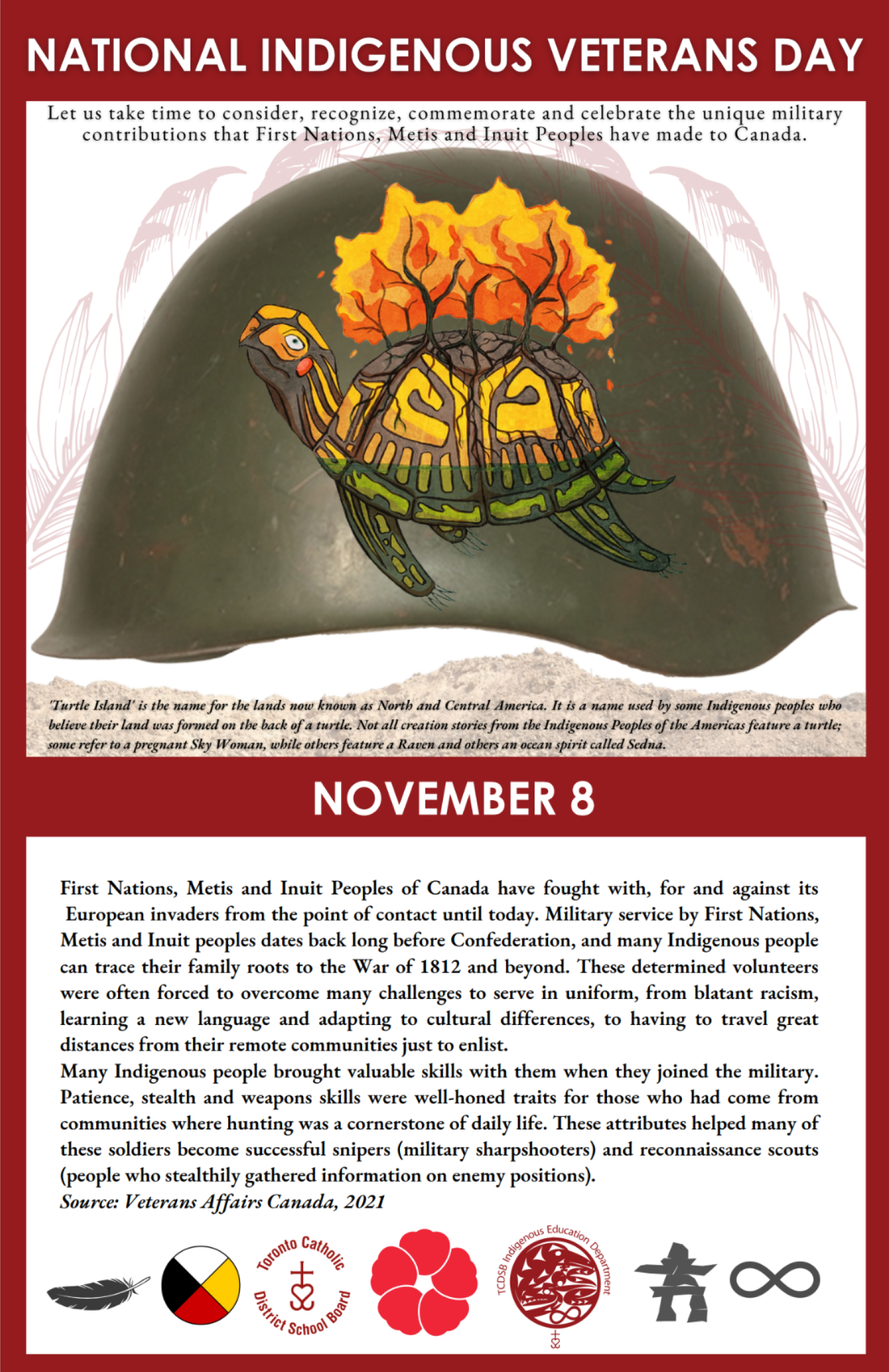
Events
National Indigenous Veterans Day
The Toronto Catholic District School Board (TCDSB) is proud to honour the lives, sacrifices, and contributions of Indigenous Peoples to Canada by recognizing National Indigenous Veterans Day on November 8.
First Nations, Inuit, and Métis peoples have a long history of military service in Canada, dating back to pre-Confederation times. These communities have fought with, for, and against European invaders since the time of first contact, with many able to trace their family roots to the War of 1812 and earlier conflicts. Indigenous soldiers often faced numerous barriers to serve, including racism, language challenges, and cultural differences, as well as the need to travel great distances from their communities just to enlist.
Many Indigenous recruits brought invaluable skills to the military. Those from hunting communities often possessed patience, stealth, and weapons expertise, which made them exceptional snipers and reconnaissance scouts.
Throughout November, and in conjunction with Remembrance Day, we commemorate the contributions of Indigenous Veterans and the profound impact they have had on Canada and the world. Promoting culturally responsive and relevant education is essential to dismantling racism, especially Anti-Indigenous racism, which remains a key focus for the TCDSB and its Indigenous Education, Equity, and Community Relations department. Source: Veterans Affairs Canada, 2021

National Indigenous Veterans Day Webinar
Date: November 6, 2025
Time: 9:15 to 10:15 AM
Presented by: Mike Duke (Indigenous Veteran)
How to Register: Registration Link (Link to webinar will be sent out upon registration)
Michael Duke is Anishinaabe of the Bear Clan, claimed to and by the Antler River Anishinaabe, and resides within the Haldimand Tract (Galt) in the Region of Waterloo — the granted territory of the Six Nations of the Grand River and the Treaty Peoples of this land.
He began his service to Canada in 1988 with the Regular Armed Forces, serving in Air Defence Artillery until 1993, and went on to dedicate 32 years with the Royal Canadian Mounted Police across Atlantic Canada, Ontario, and Manitoba, in First Nations, Provincial, and Federal policing, including National Security. He will retire from the RCMP in November 2025.
Michael now serves as Executive Director of White Owl Native Ancestry Association (established in 1975), an Indigenous-led organization that supports urban Indigenous youth, families, and community through cultural programs and outreach.
The link to the webinar will be sent out upon registration:
